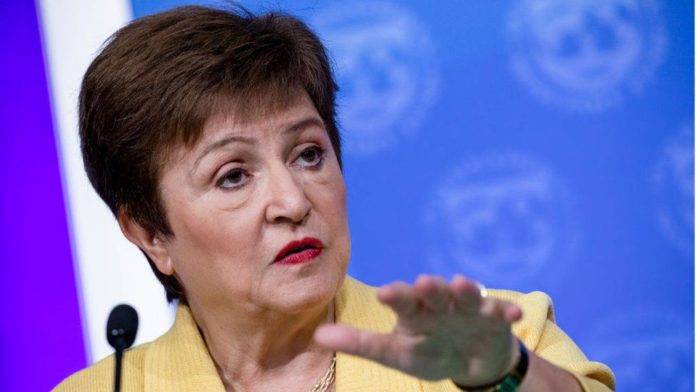According to Kristalina Georgieva, the managing director of the International Monetary Fund, more than 30% of emerging and developing nations are in or on the verge of debt difficulty.
In low-income nations, that percentage is 60%.
According to her, the debt servicing burden has become more severe and, for certain nations, untenable due to tighter financial circumstances and currency rate depreciations.
Speaking at the G20 Finance Ministers and Central Bank Governors hybrid meeting, Madam Georgieva noted that the global economy's outlook has become much more gloomy and unclear, and that "downside risks about which the IMF had previously warned have already materialised."
In order to combat the plague of excessive debt, which has risen to multiyear highs, she so requires a strong global leadership.
"The conflict in Ukraine has gotten worse, adding to the pressure on food and commodity prices. More so than initially expected, the world's financial circumstances are becoming tighter. Additionally, ongoing supply chain constraints caused by the epidemic and new ones are impacting on economic growth.
"As a result, in our World Economic Outlook Update later this month, we will predict a further downgrade to global growth for both 2022 and 2023. Furthermore, there will still be downside risks and they might get worse—especially if inflation becomes more persistent—requiring even larger policy interventions that would hurt GDP and worsen spillovers, especially to emerging and developing nations. High debt burdens and constrained policy options will put extra pressure on such nations. Sri Lanka should serve as a warning message, she continued.
The last four months have seen consistent capital outflows from emerging and developing nations. Currently, they run the risk of undoing three decades of progress toward catching up with advanced economies and instead falling further behind.
three priorities for navigating a difficult situation
The IMF MD emphasised that first-world nations must use all reasonable efforts to reduce inflation, warning that failing to do so might jeopardise the recovery and worsen conditions for those with lower incomes.
She expressed happiness that central banks are improving.
More than three-quarters of central banks have hiked interest rates, and they have done so 3.8 times. This indicates that monetary policy is becoming more synchronised. The success of these policy activities depends on central bank independence and effective communication.
Second, she stated that fiscal policy must support central bank efforts to control inflation without impeding them.
Some people will need more assistance, not less, as development slows. As a result, fiscal policy must lower debt while offering targeted assistance to disadvantaged people dealing with fresh shocks, particularly from rising energy or food costs.
Thirdly, Kristalina Georgieva remarked that the globe needs to work together more than ever to address the several issues it is now experiencing. To address the concerns from food insecurity and excessive debt, the G20 has to take the lead.


